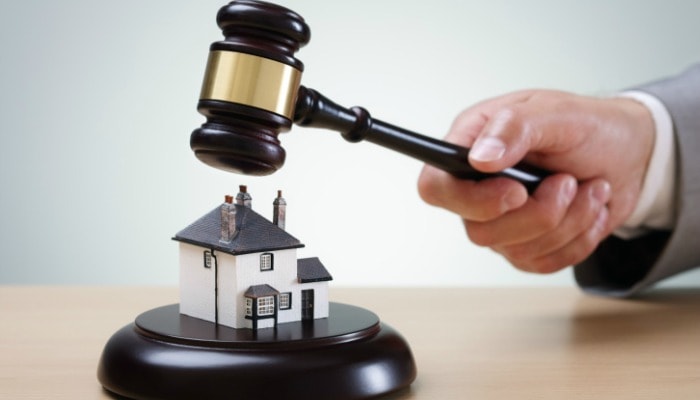Being a Baltimore landlord is already a complicated job, and the last thing you want on top of all your other duties is to land in legal troubles with a tenant.
Not only can a lawsuit be a huge financial burden – it can waste your time and cause you tons of stress.

If you’re wondering how to avoid the hassle of tenant lawsuit, you’ve come to the right place. Keep reading to learn 7 strategies that’ll help you steer clear of legal trouble as a landlord.
The Best Ways to Avoid Tenant Lawsuits as a Baltimore Landlord
1. Properly Screen Your Tenants
One of the most important ways to keep yourself lawsuit-free is to thoroughly screen your tenants. It may take time, but it’s extremely important that you check backgrounds, credit history, and criminal records of anyone you consider.
Also, make sure you avoid discriminating against potential tenants during the screening process. The Fair Housing Act prohibits a landlord from refusing to rent a property to a tenant for reasons of:
- Race
- Religion
- Gender
- National Origin
- Disability
- Family status
If you ask a question about any of these factors, you may find yourself dealing with a lawsuit or an investigation by the U.S. Department of Housing and Urban Development. Even if you’re found to be innocent, it will cost you time, energy, and money to fight the allegations.
2. Keep Good Records
As a landlord, you should keep copies of literally every piece of paperwork related to the relationships between you and your tenants. That includes:
- Receipts for property-related expenditures
- Copies of any communications you have with tenants
- Information given to you by the city of Baltimore, vendors, etc.
But don’t just stop at paper. Any video footage, audio records, and emails you exchange should be kept as well. That way, you’re well-equipped to defend yourself when a conflict with a tenant occurs.
3. Keep the Premises Safe and Secure
You need to be sure your rental properties are accessible to tenants with mobility impairments and other disabilities.
Regardless of when your buildings were built, you must seriously consider all requests to modify your them to meet a tenant’s needs. Review the requests on a case-by-case basis and grant them if they’re reasonable.

Reasonable requests could include wheelchair ramps, lower kitchen cabinets, or bathroom grab bars.
Some other basic safety measures you should take as a Baltimore landlord include locks and adequate lighting for both interior and exterior areas.
Here are some more easy ways to stay on top of safety:
- Require your tenants to report all leaks and flooding as quickly as possible so your property managers can take quick action to prevent mold.
- Keep your heating systems and appliances maintained, and install carbon monoxide detectors.
- Be sure your rental units comply with federal testing requirements when employees or contractors work on asbestos-containing building materials (like sprayed-on ceilings).
- Remove any environmental hazards like lead paint dust, carbon monoxide, or radon.
If one of your tenants suffers a physical injury or property damage after you’ve been made aware that the property is unsafe, that tenant may be able to sue and recover some hefty compensation from you.
Tip: Check out this checklist for more information on keeping your Baltimore rental properties safe!
4. Keep Tenants Informed
One legal mistake landlords often make is failing to disclose important information about the rental property. Common disclosures include:
- Notice of mold
- Information about a state’s sexual offender registry
- Notice of sex offenders that live in the area
- Recent deaths that occurred in the rental unit
- Notice of lead-based paint (if the property was built before 1978)
Many landlords deal with civil court cases due to tenant health problems resulting from environmental toxins in the premises. So, let your tenants know of any possible situations that could cause them harm.
5. Build Healthy Relationships with Tenants
The best way to prevent tenant lawsuits is to have strong relationships with them. When your renters like you, it sharply decreases the likelihood that they take legal action against you.
Make sure you’re always fair in your dealings with all your tenants, and never give one tenant a significantly better deal than you give another. If anyone finds out that you have been an unfair or unreasonable landlord, you’ll be fighting in court against a disgruntled tenant before you know it.
Tip: If you want to avoid a poor relationship with your tenants, check out this blog on negative landlord stereotypes and how to avoid them!
6. Make Repairs ASAP
If a tenant requests repairs, immediately set up a time to come and inspect the damage (or have a trusted contractor take care of it).

You might think: It’s my property, why can’t I make repairs on my own time?
For one thing, if you don’t fix the damage promptly, tenants can sue you for any injuries caused by a defective condition. On top of that, the faster you handle the repairs, the happier your tenants will be. This is important because happy tenants are far less likely to file a lawsuit against you.
Make sure you always let know when your team plans to stop by in advance. Then, once the repair work is complete, follow up with the tenant to make sure it’s to their satisfaction (and yours). They’ll appreciate the courtesy.
7. Know the Laws in Baltimore
If you’re a Baltimore landlord, there are rules and regulations that apply specifically to you.
There are many resources online you can use to explore and understand any areas of the law that relate to your job as a landlord, including the People’s Law Library of Maryland.
One of the key laws you must learn to avoid legal trouble involves rental housing registration. If you own a building with six dwelling units or fewer that you intend to rent, you must be registered or approved for exemption by Baltimore County before tenants move in.
If your property doesn’t qualify for exemption, you must follow these steps to register it with Baltimore County:
- Pay registration fees ($40-50)
- Get the property inspected
- Provide documentation (inspection sheet, carbon monoxide alarm verification, lead inspection certificate)
- Apply online, by mail, or in person
Remember that your tenants have rights under the law, and it’s your job to know what those rights are. Any violation can get you in trouble with Baltimore County officials and lead to a lawsuit.
Final Thoughts
Even if you’re the most careful landlord in Maryland, a lawsuit could arise out of unforeseen circumstances. That’s why you’d be wise to always have a capable attorney for your rental property business.
You can also hire a Baltimore County property management company to handle all the tasks you might accidentally overlook or prefer to avoid altogether.
If you want any further information on how to avoid disputes with tenants, check out this detailed pamphlet provided by the Consumer Protection Division from the Maryland Attorney General’s office.
